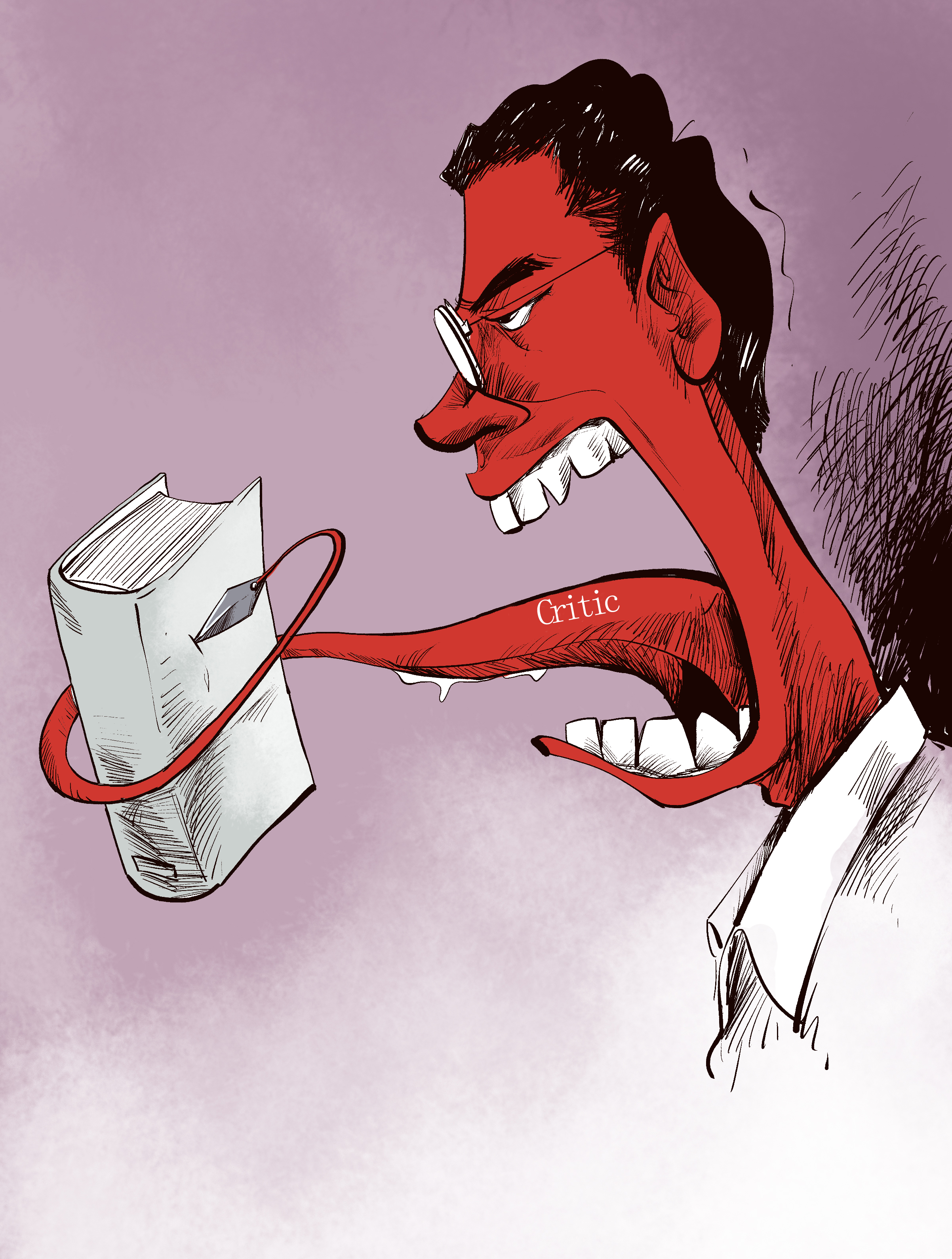WANG XIAOHUA: Literary criticism lacks adequate supervision

‘Forced interpretation’ needs checks
Cartoon by Gou Ben; Poem by Long Yuan
The state of literary critique
Across the country is quite weak.
Critics’ bias and forced interpretation
Stifle the voices of the writers.
Criticism is a one-way street
With judgments handed down
From atop a high seat.
Literature requires the construction
Of a better space for healthy discussion.
While Chinese literary criticism has gained increasing recognition since the start of the 21st century, it has come under scrutiny for a lack of self-discipline and the absence of constraint. As far as I’m concerned, it is particularly important to adopt a critical attitude toward literary criticism.
Seemingly, the targets of literary criticism are writers and their works. However, several problems remain, such as the questions of how to evaluate the results of criticism and whether to exempt critics from criticism. Also, the field wrestles with tasks like ensuring criticism is fair and effective, constraining the impulses of critics who cross the line, and whether criticism is the self-appointed dictatorship of a minority.
Some may contend that critics have the capacity to self-regulate. If this is true, the process of literary criticism is more like a monologue than a dialogue. Moreover, such self-criticism follows a traditional self-regulating approach in which critics behave as contestants and judges at the same time. This means admitting that critics are free from restriction and encouraging dictatorial judgment.
In fact, the lack of an effective constraint mechanism has led to irresponsible behavior in literary criticism. For instance, criticism is simply used to help certain authors win awards while it ignores the quality of texts. Critics tend to evaluate works based on a preset model, turning a deaf ear to the true voices of these works, which will certainly discredit the results of literary criticism.
In China, literary criticism has already come under scrutiny, but related principles have yet to be normalized and the style has yet to be constructed. At present, Chinese literature urgently needs effective criticism, given that some critics have become accustomed to making condescending judgments, and some others have shown a tendency toward “forced interpretation” by placing targeted works under a presupposed framework.
As a result, the legitimacy of literary criticism has been increasingly questioned. In the 1990s in particular, critics were quite divided over some key problems. Thus, there was an urgent need to integrate different opinions. However, due to the lack of the awareness of being open to criticism, critics were obsessed with verbal argument while defending different positions. They focused on the logical loopholes of others regardless of their merits in order to prevail in the debate. In my opinion, such a debate was a process of one biased viewpoint being replaced by another.
If critics were also included among the targets of criticism, it would be easier to make clear the rationality and limitations of their arguments. In this way, the discourse of literary criticism could be made more inclusive and create an inter-subjective experience in the field. And in this process, critics will gradually shed their notions of privilege and adopt a correct method of criticism.
It should be noted that critiques of literary criticism cannot be classified into meta-criticism because such criticism is not aimed at establishing a new authoritative framework but rather attempts to guide literary criticism in a fairer and more objective way. Criticism of literary criticism, though clumsy in wording, expresses exactly what Chinese literary criticism is expected to be.
Wang Xiaohua is from the College of Arts at Shenzhen University.
